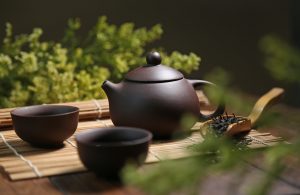
According to the Ministry of Education (MOE), the Special Assistance Plan (SAP) was set up in 1979 “to develop bilingual students”, “as part of Singapore’s approach for every community to preserve and practise their cultures, religion and languages”.
To enter SAP secondary schools, students must be in the top 10% of their cohort in the Primary School Leaving Examinations (PSLE) and attain ‘A’ grades for their Mother Tongue and English languages.
Traditional cultures seem to be diminishing in Singapore as westernisation and modernisation take over. Some students/parents are worried and are still interested in the appreciation of Chinese culture and conserving it.
If you’re looking towards an SAP school because you’re interested in having more exposure to the Chinese culture, here are some of the ways that SAP schools inculcate them:
(Do note that not every SAP school will have the same programmes.)
Wushu
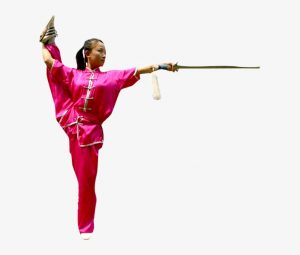
Wushu is a Chinese martial art that involves weapons such as swords and spears. It is also a common sport or performing arts Co-Curricular Activity (CCA) in Singapore schools.
In SAP schools, they expose students to Wushu moves as part of their Physical Education (PE) lessons.
Students have to follow traditional Wushu moves and choreography from their instructor, which train their coordination, balance, strength and more. It is a healthy way to keep fit while appreciating Chinese culture.
Chinese calligraphy and painting

Chinese calligraphy is the art of writing Chinese characters with a paintbrush and black ink on traditional rice paper.
It was how the olden-day Chinese wrote without a pen, and it is a unique practice because it is completely different from how students nowadays are used to writing with pen and paper.
This activity appeals to students because of the aesthetics and also the ability to explore their Chinese handwriting.
They are also given the opportunity to paint traditional pictures such as roosters, birds and plum blossoms.
Carve Chinese chops
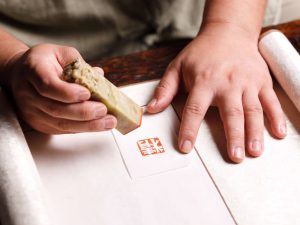
In the olden days, the Chinese had their traditional stamps to sign off in their paintings and letters.
Students in SAP schools get the opportunity to carve out Chinese characters such as their Chinese names, dip the chop into red ink, allowing it to become a functional stamp.
This is also a fun activity that students enjoy because they get to make their own individualised chop.
Mid-autumn festival celebrations
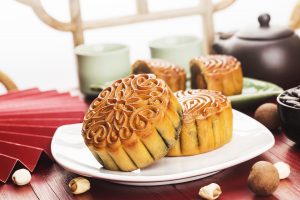
Mid-autumn festival celebrations are usually one of the most exciting events for SAP students. They get a rare chance to stay in school until night to carry lanterns, walk around in the school compounds and watch them glow in the dark.
Carrying lanterns is a Chinese tradition to appreciate the full moon at night.
During these celebrations, they will also usually have performances such as Chinese dance or skits and get to make or purchase different types of tasty mooncakes.
Tea appreciation

SAP schools will either invite external vendors or bring their students to tea houses to try out the authentic process of making tea.
They will experience brewing the tea, pouring them into small Chinese teacups and tasting them. In these, it is important that they learn the proper traditional way as the Chinese have certain etiquette in the way they make the tea, hold the teacups and sip the tea.
It is a very different experience as compared to the modern ready-made tea.
Diabolo

Diabolo, also known as the Chinese yo-yo, is a challenging activity that could also be inculcated in their PE lessons.
It involves balancing the hourglass-shaped structure on a string connected to sticks. They will learn to pick up the diabolo, spin it, toss it in the air and catch it, all with the string only.
This activity takes high levels of hand-eye coordination, balancing skills and concentration.
It takes skill and practice to master the diabolo, but many students take an interest in it and go on to buy their own diabolo even after their lessons.
Appreciation of Chinese Culture (ACC) subject

The SAP curriculum includes a subject called Appreciation of Chinese Culture (ACC) which requires the students to learn about Chinese history and be tested on it afterwards. It is beneficial for students to learn about the Chinese culture because it embodies strong values such as loyalty and respect, which students can take away from ACC and apply to their lives.
Because it is graded and accounted for in their internal exam results, this might be stressful for some of the students. Some may feel that it is an unnecessary component as this is not a subject in the O-Level syllabus, so this is something you might want to consider before applying for an SAP school.
Conclusion
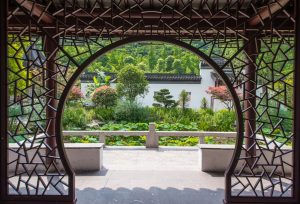
The programmes in these schools exist to prevent the extinction of Chinese culture and to ensure that students get to experience a tinge of tradition in our modern society. Most of the time, even the architecture of the school buildings also displays traditional Chinese culture.
SAP schools provide a good environment for those interested in learning Chinese culture and developing bilingualism, which is becoming increasingly rare today. If the above programmes have interested you, SAP schools might be for you.
To find out more about SAP schools, read our comprehensive guide here.
Which of these programmes was the most interesting to you? Let us know in the comments!
